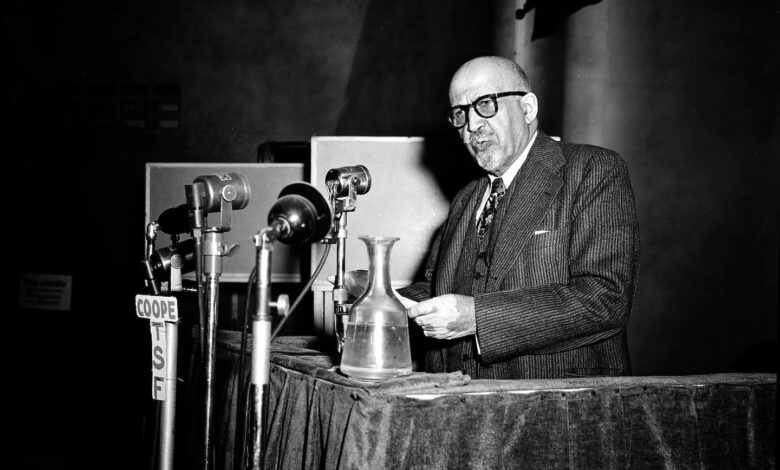Target stops selling civil rights product with errors about Black icons

- The “Civil Rights Magnetic Learning Activity,” by Ohio-based Bendon Publishing, mixed up the names of American author and historian Carter G. Woodson, sociologist W.E.B. Du Bois and educator Booker T. Washington.
- Du Bois was identified as Woodson, Washington as Du Bois and Woodson as Washington, according to the viral TikTok video posted last week.
- The kit was not available for purchase on the Target website or Bendon’s publisher site as of Saturday morning.
The magnetic activity kit includes 28 illustrated magnets, several of which are of notable leaders of the civil rights movement, including Rosa Parks, Dorothy Height and Malcolm X. The kit was available for purchase ahead of Black History Month.
“I get it, mistakes happen,” Las Vegas high school teacher Tierra Espy, who goes by @issatete on TikTok, said in the video. “But this needs to be corrected, ASAP.”
The mix-up drew outrage online, which prompted Target to pull the kit from its shelves.
“We will no longer be selling this product in stores or online,” a spokesperson for the Minneapolis-based retailer said in a statement addressed to The Post. “We’ve also ensured the product’s publisher is aware of the errors.”
Brendon, the publisher, didn’t respond to requests for comment on Saturday.
The misidentification comes at a time when officials in Republican-led states across the country, including Florida and South Carolina, are adopting stricter standards for how to teach Black history in public schools and restricting books about race and racism, including Du Bois’s “The Souls of Black Folk.”
Last year, the Florida State Board of Education updated its standards to say students should learn that enslaved people “developed skills” that “could be applied for their personal benefit,” and that in teaching about mob violence against Black residents instructors should note “acts of violence perpetrated against and by African Americans,” The Post reported. The unanimous vote came after the board blocked a new Advanced Placement high school course on African American studies earlier that year because it “lacks educational value.”
Here’s what to know about these civil rights leaders:
The origins of Black History Month can be traced back to Woodson.
Woodson was born in 1875 in New Canton, Va., to formerly enslaved people. During his youth, he worked as a sharecropper and coal miner to help support his family, according to the NAACP.
Woodson entered high school late — at 20 — but he graduated in less than two years, according to the NAACP. He received his bachelor’s degree in literature from Berea College in Kentucky, a master’s degree from the University of Chicago and a PhD from Harvard University. He was the second Black American, after Du Bois, to obtain a doctorate from the Ivy League university.
Among Woodson’s many contributions was the formation of an organization to promote the scientific study of Black life and history.
Woodson founded the Association for the Study of Negro Life and History — now known as the Association for the Study of African American Life and History (ASALH) — in Chicago in 1915. He was inspired by the widespread celebration of Black history and heritage in the city during its commemoration of the 50th anniversary of emancipation, according to the association. The association’s mission was to study the “neglected aspects of Negro life and history,” according to the NAACP.
A year later, Woodson founded the Journal of Negro History — now known as the Journal of African American History. It is the official publication of the ASALH. The journal highlights the achievements of Black Americans and publishes original scholarly articles and book reviews on the African American experience, according to the publication’s website.
Woodson, who worked as a teacher, a principal and the dean of Howard University’s College of Arts and Sciences, is widely regarded as the “father of Black history” for his contributions to African American studies. His commitment to celebrating Black history and heritage culminated in the formation of Negro History Week in 1926, according to the NAACP. The celebration, which Woodson launched during the second week of February, coincided with the birthdays of Abraham Lincoln and Frederick Douglass.
Half a century later, during the Civil Rights and Black Power movements and 25 years after Woodson’s 1950 death, the association expanded Negro History Week to Black History Month.
Born on Feb. 23, 1868, in Great Barrington, Mass., Du Bois was one of the most prominent Black scholars and intellectuals of his time.
Du Bois became the first African American to earn a doctoral degree from Harvard in 1895. He taught classics and modern languages for two years at Wilberforce University in Ohio; worked for the U.S. Bureau of Labor Statistics, where he conducted groundbreaking studies on Black Southern households in Virginia, Alabama and Georgia; and taught sociology at Atlanta University, according to History.com.
In 1910, Du Bois resigned from his teaching position at Atlanta University to become the NAACP’s director of publicity and research. A founding member, he moved to New York, where he edited the organization’s monthly magazine, the Crisis, according to the NAACP. He resigned as editor of the publication in 1934 after a dispute with NAACP leadership; he returned years later. In his new position as director of special research, Du Bois represented the NAACP at the first meeting of the United Nations. He resigned again in 1948.
Du Bois joined the American Communist Party in 1961 before leaving the country to live in Ghana at the invitation of its president, Kwame Nkrumah, and became a citizen there, according to History.com. Du Bois died Aug. 27, 1963, in Ghana.
Some of Du Bois’s most notable works include “The Strivings of the Negro People,” an essay published in the Atlantic Monthly in 1897, and “The Philadelphia Negro,” a groundbreaking 1899 study of the city’s Seventh Ward. In the latter, he concluded that the Black community’s greatest challenges were poverty, crime, lack of education and distrust of those outside the community.
In 1903, he published his seminal work, “The Souls of Black Folk,” in which he coined the term “double consciousness” to describe the Black experience in America.
“One ever feels his twoness,—an American, a Negro; two souls, two thoughts, two unreconciled strivings; two warring ideals in one dark body, whose dogged strength alone keeps it from being torn asunder,” he wrote.
Washington was born into slavery on April 5, 1856. He would go on to rival Du Bois as one of the country’s leading Black intellectuals and become the first African American to be invited to the White House.
Washington, the son of an unknown White man and an enslaved cook named Jane, was enslaved for the first nine years of his life before being freed, according to Tuskegee University. His mother moved the family to Malden, W.Va., where Washington worked as a salt packer, coal miner and houseboy.
In 1872, Washington was admitted to Hampton Normal and Agricultural Institute in Virginia, a school Gen. Samuel Chapman Armstrong founded for formerly enslaved people, according to Tuskegee University. Washington graduated with honors in 1875 and studied at Wayland Seminary in D.C. before becoming a teacher.
In 1881, Armstrong referred Washington to become the leader of a new school for African Americans in Alabama, the Tuskegee Normal and Industrial Institute — now known as Tuskegee University.
Washington’s personal politics drew him into direct conflict with the Black intellectuals of his time — Du Bois chief among them. Du Bois sought advancement through the achievement of political and civil rights, while Washington, who lived in the Jim Crow South, championed economic self-determination and discouraged civil rights “agitation.”
“The wisest among my race understand that the agitation of questions of social equality is the extremest folly, and that progress in the enjoyment of all the privileges that will come to us must be the result of severe and constant struggle rather than of artificial forcing,” Washington said during an 1895 address in Atlanta dubbed the “Atlanta Compromise.”
“No race that has anything to contribute to the markets of the world is long in any degree ostracized. It is important and right that all privileges of the law be ours, but it is vastly more important that we be prepared for the exercises of these privileges,” he said. “The opportunity to earn a dollar in a factory just now is worth infinitely more than the opportunity to spend a dollar in an opera house.”
Du Bois criticized Washington in “The Souls of Black Folk,” arguing that economic equality was not possible without the political and civil rights that he sought. Washington was nicknamed “The Great Accommodator.”
Even though Washington had a more moderate approach to civil rights than some of his contemporaries, he secretly funded lawsuits challenging segregation.
He died in 1915, about four decades before the civil rights movement.




